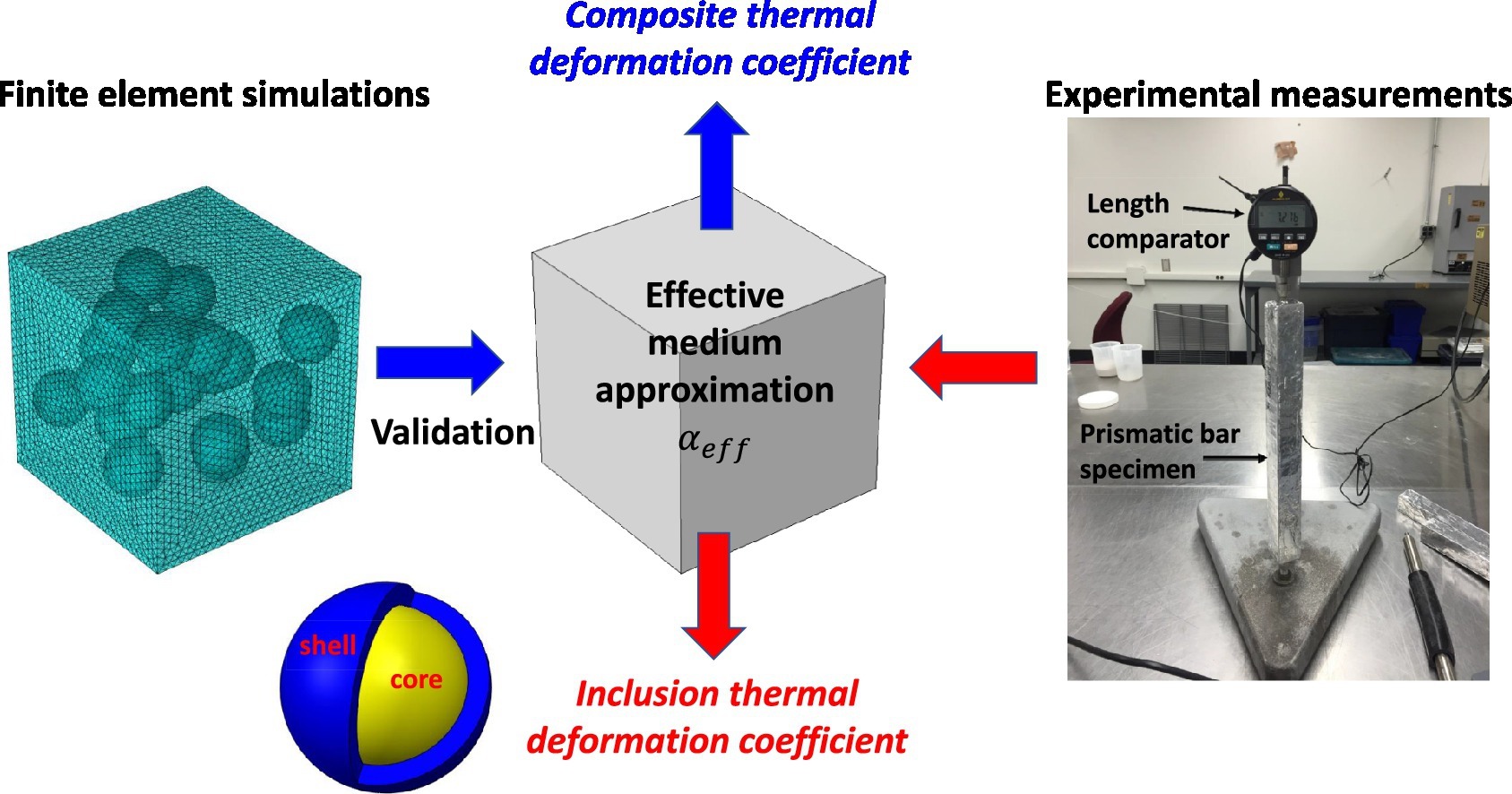A general method for retrieving thermal deformation properties of microencapsulated phase change materials or other particulate inclusions in cementitious composites
Abstract
This study examined the effects of spherical core-shell particle inclusions, such as microencapsulated phase change materials (PCMs), on the thermal deformation behavior of cement-based composites. First, simulations of volumetric thermal deformation in representative microstructures were carried out, based on the finite element method (FEM), to predict the effective thermal deformation coefficient of the composites. Excellent agreement was found between the effective thermal deformation coefficient predicted by FEM and by the effective medium approximation (EMA) developed by Schapery (1968). Furthermore, the effective thermal deformation coefficient of cementitious composites with either microencapsulated PCM or quartz particulates was measured. The measured effective thermal deformation coefficients together with Schapery’s model were used to retrieve the thermal deformation coefficients of the inclusions themselves. The thermal deformation coefficient of PCM microcapsules was estimated to be similar to that of the shell component due to partial filling of the microcapsules. The results show a means for (i) retrieving the thermal deformation properties of functional core-shell inclusions and (ii) for designing cementitious composites with PCMs which find use in the built environment and high-performance composites.
